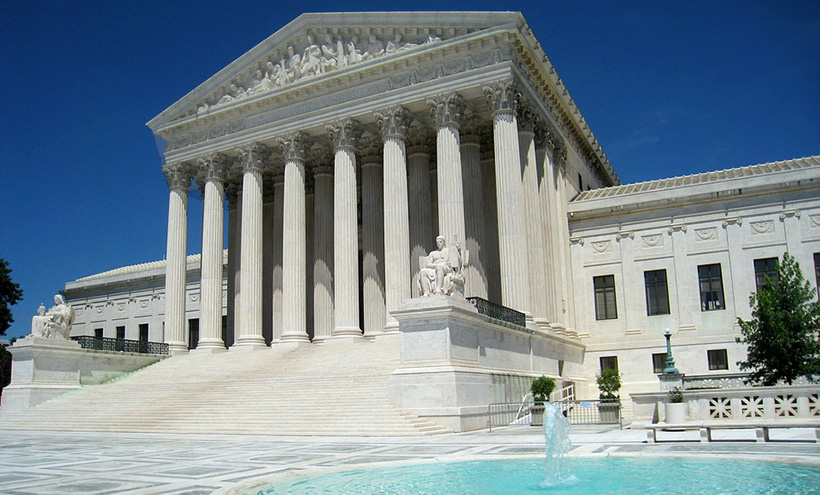Publisher's note: This post appears here courtesy of the Carolina Journal, and written by Julie Havlak.

Bruce Clarke couldn't help his client, so she called a lawyer and ended up with a bill near $1,000.
"Is that the end of the world? It might not be to many, but she's on a business that operates on government grants, and she barely makes it every day. Every day [she remains in business] is a victory," said Clarke, president of the nonprofit membership organization Capital Associated Industries.
"That's not an atypical small business situation."
Clarke says he couldn't help her, and hundreds of similar businesses, because it is illegal for his nonprofit, with offices in Raleigh and Greensboro, to offer legal advice to its members.
The U.S. Supreme Court might decide the issue. Clarke asked the high court to overturn a 1931 state law that prevents CAI, or any corporation, from giving members legal advice.
Today, legal services are so expensive that the U.S. ranks
near rock bottom in the developed nations in its citizens' ability to access counsel in civil cases. N.C. small businesses increasingly struggle to hire lawyers, said a report from the N.C. Commission on Administration of Law and Justice.
Clarke argues that the law crushes competition. But the N.C. State Bar
warns that the law protects consumers from unethical, inexpert legal advice, and that overturning the regulation could flood the market with shady legal services.
"There's just a huge gap in service. They either can't afford - or they don't want to pay - the high fees for basic services," Clarke said.
"And why should they have to? Who are we protecting here? We're protecting lawyers and law firms."
The law dates back to the Great Depression, when most states restricted the practice of law.
"It's the kind of issue that the Supreme Court might be interested in because it raises systemic issues of speech and association, but especially speech issues," said Walter Olson, a senior fellow at the Cato Institute, a libertarian think tank.
"That's an area where the Court has been active for years."
But the lawsuit touches on what has historically been a tender vein. The stigma against employed lawyers might have crumpled, but the idea of corporations practicing law remains largely taboo in the U.S.
The Ohio Supreme Court in a 1962 decision called the issue an
"emotional thing ... much like 'cats, olives, and Roosevelt;' it is either enthusiastically embraced or resolutely rejected."
North Carolina's General Assembly shelved the idea twice, and the N.C. State Bar rejected it entirely. The bar
predicted "conflicts of interest and loyalty, and impairment of attorney independence." It warned that overturning the law could create an explosion of shady associations peddling shoddy legal advice.
"Professional integrity could suffer," Judge Albert Diaz
wrote for the 4th U.S. Circuit Court of Appeals.
"An attorney who is supervised by a nonattorney would be more likely to violate those ethical obligations."
Diaz distanced nonprofit trade associations from labor unions, contrasting their drive for commercial gain with unions' duty to guard civil rights. He argued that trade associations only want to reduce their members' bills.
Whether that logic will hold in the U.S. Supreme Court is another matter. Making an exception for some nonprofits but not for others could be dicey. It could create an argument that the law must be evenly applied, Olson said.
"[Allowing unions to represent members] already crosses what the industries might say is the keyline. ... You've already got a labor union able to work under this format," Olson said.
"So they can say, 'If labor unions can, why can't we?'"
Almost all states ban corporations from practicing law. If the SCOTUS takes the case, the repercussions of its ruling would ripple across the country.
"Employers need legal services ... to comply with a labyrinth of state and federal employment regulations," Employer Associations of America, a national employer advocate, said in a
brief.
"But they cannot get it from the entities that are best situated to provide it because of the unconstitutional [regulation]."
The trade associations insist that they are not interested in representing businesses in court. Instead, Clarke says he would answer "routine, repetitive" compliance questions.
"Every small business wants to know when they put their head on the pillow at night that they're in compliance with the law," said Andy Ellen, N.C. Retail Merchants Association president.
"I'm solely interested in ensuring that our members are compliant with N.C. law every day. I think that's in everybody's best interest."
Justice Neil Gorsuch expressed a sympathetic interest in the past, despite acknowledging quality concerns.
"It seems well past time to reconsider our sweeping UPL prohibitions," Gorsuch wrote in a 2016
paper.
"Do these entirely valid concerns justify the absolute UPL bans found today in so many states? That seems an increasingly hard case to make."
The lawsuit stands a chance of getting heard by the court, Olson says.
"It's generally been strongly assertive of the rights of free speech, even if it complicates the goals of regulation," Olson said.
"That makes for a favorable atmosphere for at least suggesting that they take a look at this."

